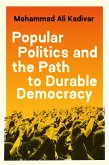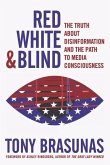The concept of freedom, applied not just to individuals but to a society as a whole, is essentially a model for that society - not just a feature of the community, not just one of many dynamics, but the very foundation of that society. Put another way, if a society is truly free, then everything about it derives from the shared freedom of its members. Every feature of that society is premised on freedom, based on the idea that everyone within it has the autonomy to live the life they choose, limited only by their agreement not to intrude upon the freedom of others, nor to compromise anyone's safety in their pursuit of their life choices. Natural freedom (discussed previously in this series) as practiced by our distant ancestors may no longer be attainable in the social universe we have since created, but the optimal level of personal autonomy and societal freedom that is attainable requires that anyone wanting to live in a truly free society must shed any biases or prejudices that might whisper to them that the freedom they desire should not apply to everyone. That is easier said than done, of course, and we've made note of just how many people and groups out there are on board with the idea that some should be more free than others - that freedom is a zero-sum proposition. Moving forward, then, our task is to carefully consider what it takes to move that bar. What must we do to create a society where freedom is enjoyed by all? What will it take for all to be free?
Hinweis: Dieser Artikel kann nur an eine deutsche Lieferadresse ausgeliefert werden.
Hinweis: Dieser Artikel kann nur an eine deutsche Lieferadresse ausgeliefert werden.








